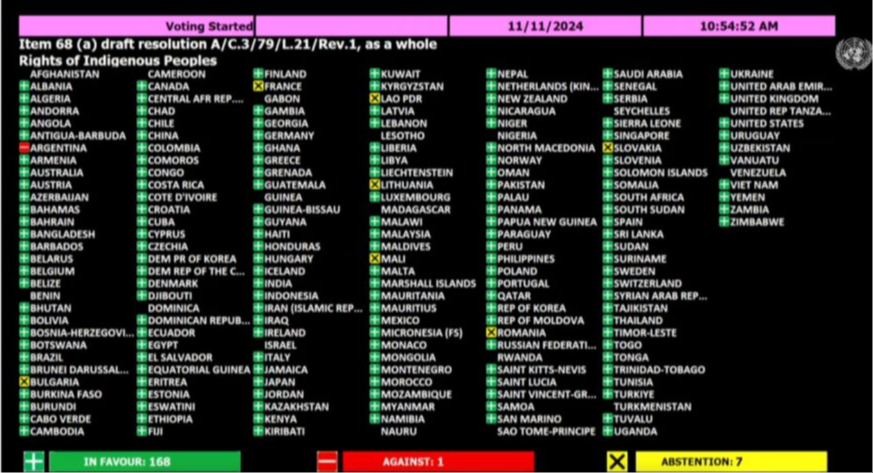
Milei against Indigenous Peoples
By María Josefina Arce.
Once again, the government of President Javier Milei has been challenged and has shown the world its xenophobic and colonialist attitude towards indigenous peoples. Argentina was the only country to vote against a resolution to protect the rights of these ethnic groups at the United Nations.
For many, it is unacceptable for the government to oppose such a resolution when, according to the 2022 census, 58 indigenous peoples live on Argentine territory.
With its position, it denies, among other rights recognized in the document, the participation of indigenous peoples in decisions that affect their ancestral territories.
However, it is not surprising if we take into account Milei's attitude towards the indigenous peoples, which has been described as racist. Neither during his electoral campaign, nor when he assumed the presidency in December 2023, have the problems of these communities been a priority.
Today, indigenous people in Argentina are invisible. They suffer from poverty, dispossession of their territories, malnutrition of their children and multiple forms of institutional violence.
The ultra-liberal president has eliminated the National Registry of Indigenous Communities, which has been catalogued as a setback in the struggle for indigenous rights.
This agency has been functioning for 30 years, without which, many have denounced, the participation of these communities in important decisions is diluted.
This agency has been in operation for 30 years, without which, as many have denounced, the participation of these communities in important decisions is diluted.
The peoples registered in this registry were protected by the International Labor Organization's Convention on Indigenous Peoples and by the Law on Indigenous Policy and Support for Aboriginal Communities.
To add insult to injury, Milei changed the name of the Indigenous Hall of the Casa Rosada, as the seat of government is called.
The attitude of the current executive has been condemned by several Argentine sectors and organizations that defend the prerogatives of citizens in the South American nation.
Many in Argentina have described the country's vote at the UN against the resolution in favor of indigenous rights as retrograde, shameful, and in violation of the Constitution.

